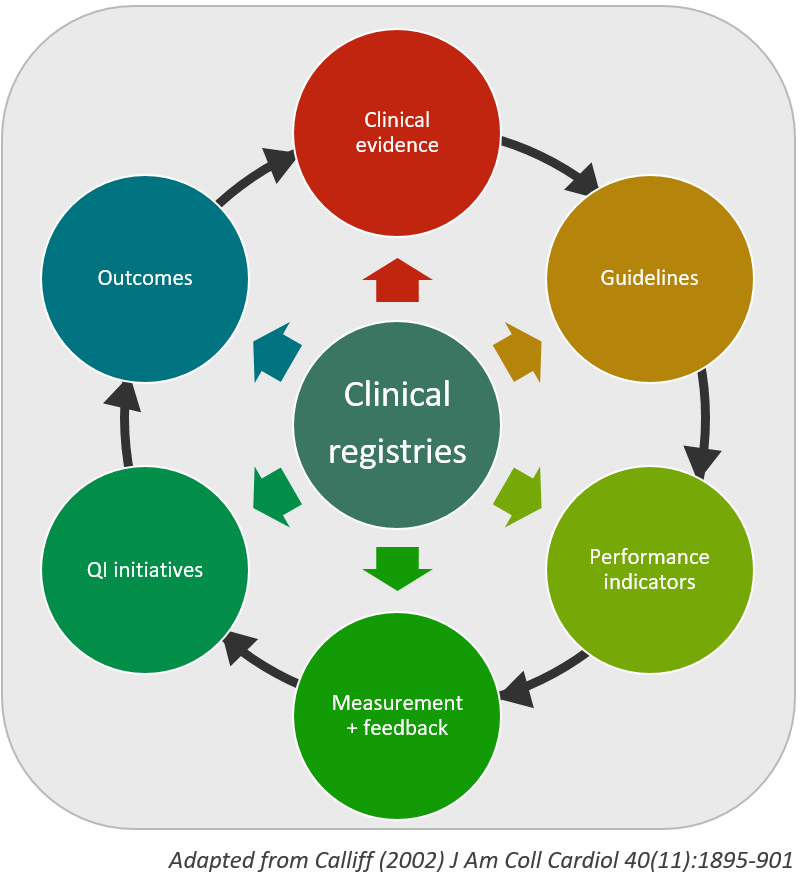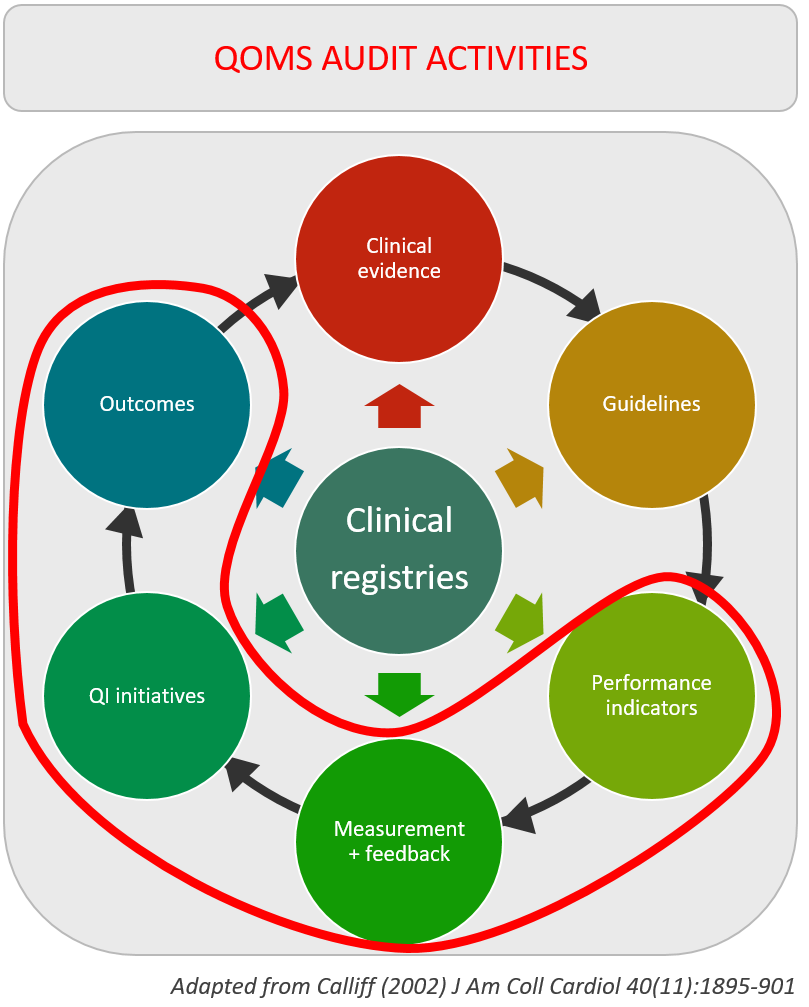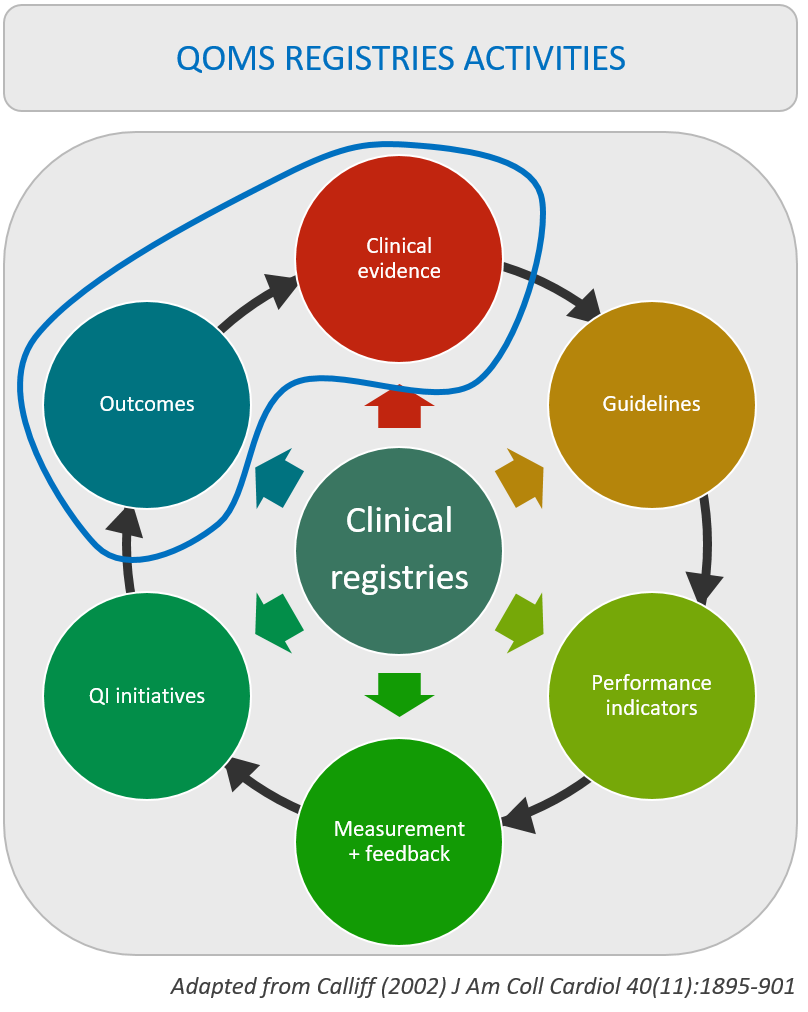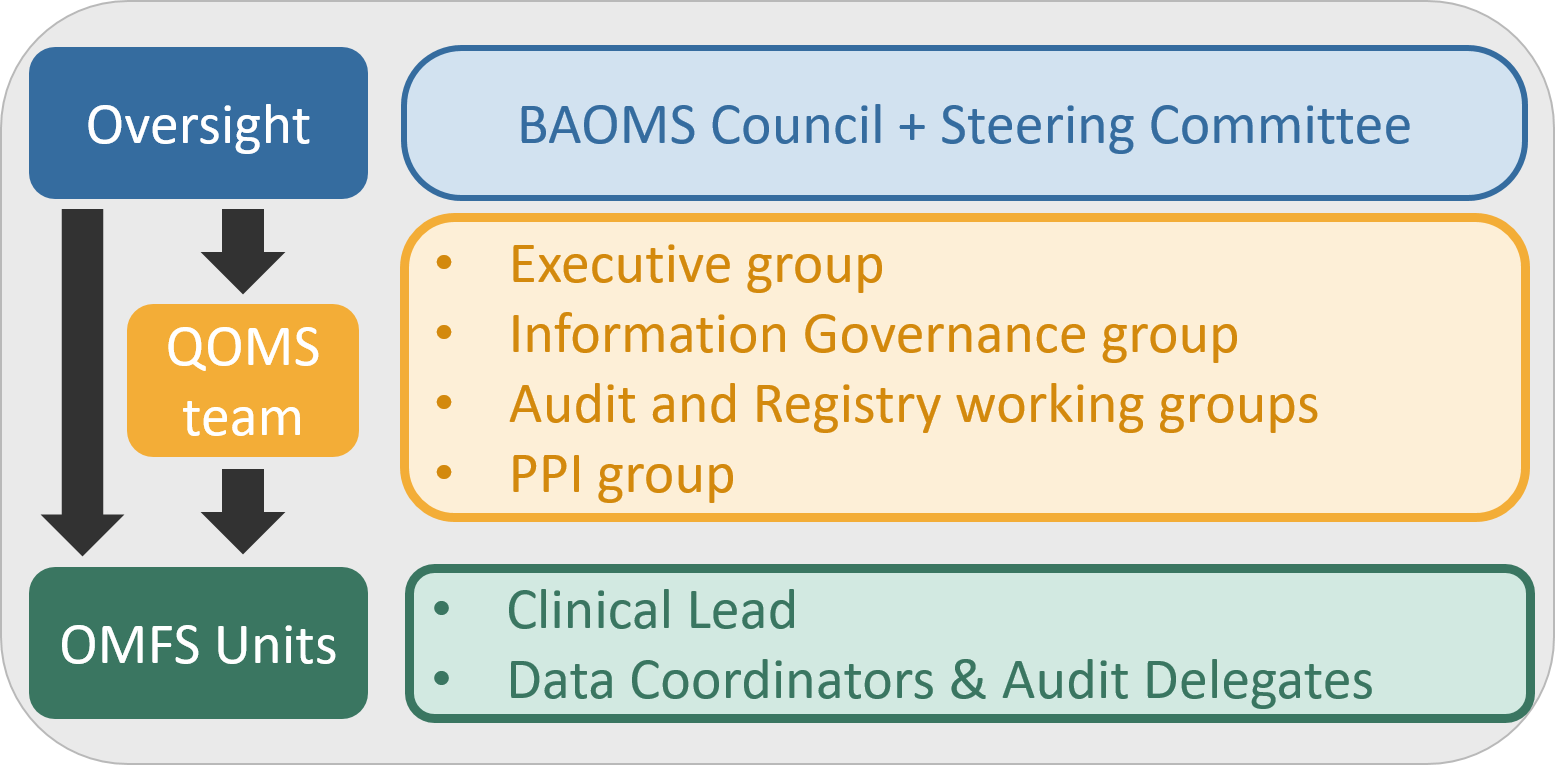
Improving practice and patient care in OMFS
This page is aimed at OMF surgeons and other health care professionals interested in the QOMS project. A similar page for patients and members of the public interested is available here.
Table of contents (Click to open this section)
Escalating healthcare expenditure in the NHS is unsustainable, and service commissioners need to provide cost-effective surgical procedures that demonstrate clear health benefits in line with best evidence-based practice. Patients should expect, and demand, high quality care and the best possible surgical outcomes from oral and maxillofacial surgery (OMFS), but the specialty lags behind other surgical specialties in publication of clinical outcomes across the UK (McMahon et al. 2018, Ho et al. 2021).
In November 2018, the Get It Right first Time (GIRFT) initiative published their first report for the oral and maxillofacial surgery. The report highlighted the lack of systematic clinical outcome measures in place, thus limiting opportunities for the specialty:
- To understand if care was being delivered in line with standards
- For providers to benchmark themselves against others
- To support continuous improvement.
Recommendation 5 of the GIRFT report was to "Deliver an efficient and patient-focused outcomes audit programme for oral and maxillofacial surgery”.
BAOMS, under its 2018 President Mr Ian Martin, and with the support of Council, initiated a specialty-wide quality improvement and clinical effectiveness programme, the Quality and Outcomes in oral and Maxillofacial Surgery (QOMS) Project. This reflected the President’s view that implementing systematic quality improvement in OMFS and ensuring effectiveness of care provided based upon appropriate metrics were key to the continued successful development of surgical care in the NHS and reflected the core culture of the Association.
QOMS is the quality improvement and clinical effectiveness programme for OMFS.
To meet the needs of the specialty, QOMS developed a series of registries to address issues around quality of care and improvement, and clinical effectiveness. The Subspecialty Interest Groups and the membership were consulted to decide on the procedures, conditions and the quality-of-care indicators to be included in QOMS.
Data collection and storage is managed by the Barts Cancer Research-UK Centre at Queen Mary University of London (BCC, QMUL), using the Research Electronic Data Capture software (REDCap).
Return to Table of contents
To set up and develop a sustainable quality management and clinical effectiveness programme that delivers continuous improvement in the care of patients undergoing OMFS, within all parts of the NHS and demonstrates health-related benefits to patients from selected core OMFS activities.
QOMS has set up and operates a series of clinical registries to collect data about OMFS practices in the UK and in time the Republic of Ireland. They were developed for either quality improvement (audits or service evaluations) or clinical effectiveness and surveillance (disease- and procedure-specific registries). QOMS exists in parallel to other already existing registries and quality improvement initiatives (see below).
Figure 1. Roles of clinical registries

Return to Table of contents
Data collected in QOMS will be used to compare OMFS units across the UK and identify and share best care practices. The project focuses on areas of the care process that impact on OMFS surgical teams.
Figure 2. Use of clinical registries for audit and quality improvement activities

QOMS wants to identify best performers against any given metric across the NHS, quality assure that data, and then generalise the care practices that underpin it by case studies, newsletters, presentations at conference, as well as BAOMS website content. Where performance falls significantly below the mean, and data checking confirms that to be the case, the association intends to provide mentorship for change.
See QOMS Audit registries for more information
Return to Table of contents
While audit activities mainly concentrate on the lower part of the clinical registry cycle, QOMS aims to also develop in time some disease- or procedure-specific registries. Those registries will be used to assess the long-term effects and the changes of current practices on care quality and patient’s outcomes and look at OMFS practice for which there is little or no strong available evidence and support the development of for high-quality, strong recommendations.
Figure 3. Use of clinical registries for clinical effectiveness, disease- and procedure-specific registries

See the Condition and procedure-specific registries page for more information.
Return to Table of contents
Click to open this section
- The Temporomandibular Joint (TMJ) Replacement Registry already exists and is administered independently of QOMS by Saving Faces.
- The National Clinical Improvement Programme (NCIP) from NHS digital and The Getting It Right First Time (GIRFT) initiative in England. Both initiatives are using data from the NHS Health Episode Statistics (HES) database. Efforts are underway for HES data to be utilised for comparative purposes, hence accurate numbers and good quality data will be essential in providing information for the next phase of the BAOMS QOMS initiative. GIRFT is currently working on their 2nd data deep dive into HES data to assess quality of clinical coding and care. We are working with GIRFT to validate case ascertainment for QOMS. NCIP has been working since 2018 on ways to use HES data to drive quality improvement across a variety of surgical specialties. For Head and Neck oncology and reconstruction, they collaborated with Reza Nouraei, an ENT surgeon at Southampton, to develop an algorithm to extract identify and clinical data form HES. They have created in parallel a portal where surgeons can visualise their data for a set of indicators. NCIP is currently trying to pilot their systems in different hospitals in England. NCIP is also working on expanding their work onto other areas of OMF practice.
Return to Table of contents
QOMS is overseen by the BAOMS Council and the QOMS Steering Committee. The QOMS team is led by the BAOMS QOMS Clinical Lead, Mr Michael Ho, and deputy lead, Mr David Tighe. The QOMS Project manager, Dr Fabien Puglia, is responsible for the day-to-day activities of the project.
The project team also include:
- The Information Governance Group (IGG), which deals with all information governance issues. The IGG includes Mr Michael Ho, Mr Jeremy McMahon (Caldicott Guardian), Dr Marisa Mason (National Confidential Enquiry into Patient Death and Outcome, NCEPOD) and Dr Fabien Puglia.
- The Audit and Registry working groups (see individual registry’s descriptions): Mr Geoff Chiu, Mr Panayiotis Kyzas, Professor Ashraf Ayoub, Mr Moorthy Halsnad, Ms Christine Lwin, and Mr Alexander Hills.
- Trainee representative: Ms Harmony Ubhi.
- A Patient and Public Involvement group made up by patients and lay members to represent the opinions and voices of patients from different subspecialties.
- QOMS is also supported by members of Saving Faces: Professor Iain Hutchison and Dr Fran Ridout.
Figure 4. Structure of the QOMS project

Return to Table of contents
QOMS Short Introduction for Clinicians
This video gives a quick overview of QOMS, the quality improvement and clinical effectiveness programme initiated by the British Association of Oral and Maxillofacial Surgeons for the specialty (BAOMS).
QOMS Introduction for Clinicians
This video describes briefly the Quality and Outcomes in Oral and Maxillofacial Surgery, QOMS. QOMS is the quality improvement and clinical effectiveness programme initiated by the British Association of Oral and Maxillofacial Surgeons for the specialty (BAOMS).
The QOMS experience in Glasgow
This video is an extract of the webinar held by the QOMS Team in November 2020.
Webinar links to videos:
The webinars held in 2020 and 2021 for OMS surgeons were given by the BAOMS QOMS team to introduce QOMS to a wider audience, present the 2nd phase of the project and offer an opportunity to participants to ask questions directly to the team. Both webinars also include a short presentation by Jeremy McMahon showing how QOMS could be used to assess performance of clinical care locally and direct future quality improvement work.
Return to Table of contents
Click to open this section
- McMahon J, Puglia F, Martin I, et al. Measuring health-related benefit and quality of care in oral and maxillofacial surgery: British Association of Oral and Maxillofacial Surgeons Outcomes Project. British Journal of Oral and Maxillofacial Surgery 2018;56:439–43. doi:10.1016/j.bjoms.2018.05.016
- Ho MW, Nugent M, Puglia F, et al. Results of flap reconstruction: categorisation to reflect outcomes and process in the management of head and neck defects. British Journal of Oral and Maxillofacial Surgery 2019;:S0266435619303213. doi:10.1016/j.bjoms.2019.08.005
- Ho MW, Puglia F, Tighe D et al. BAOMS QOMS (Quality and Outcomes in Oral and Maxillofacial Surgery): a specialty-wide quality improvement initiative, progress since conception. British Journal of Oral and Maxillofacial Surgery 2021 DOI: https://doi.org/10.1016/j.bjoms.2020.12.023 (accepted)
- Ho MW, Puglia F, Tighe D et al. BAOMS QOMS: findings from the pilot phase and lessons learned in the feasibility evaluation of a national quality improvement initiative. British Journal of Oral and Maxillofacial Surgery 2021 DOI: https://doi.org/10.1016/j.bjoms.2021.02.015 (accepted)
- COVIDTrach collaborative. COVIDTrach; the outcomes of mechanically ventilated COVID-19 patients undergoing tracheostomy in the UK: Interim Report. Br J Surg. 2020 Nov;107(12):e583-e584. doi: 10.1002/bjs.12020. Epub 2020 Sep 17. PMID: 32940347.
- Hamilton N, Schilder A, Jacob T, et al. COVIDTrach; a prospective cohort study of mechanically ventilated COVID-19 patients undergoing tracheostomy in the UK. medRxiv 2020;:2020.10.20.20216085. doi:10.1101/2020.10.20.20216085
- Puglia FA, Hills A, Dawoud B, et al. Management of oral and maxillofacial trauma during the first wave of the COVID-19 pandemic in the United Kingdom. British Journal of Oral and Maxillofacial Surgery 2021;:S0266435621000140. doi:10.1016/j.bjoms.2020.12.021
- Puglia FA, Ubhi H, Dawoud B, et al. The management of odontogenic cervicofacial infections presenting to Oral and Maxillofacial Units during the first wave of the COVID-19 pandemic in the United Kingdom. British Journal of Oral and Maxillofacial Surgery 2021;:S0266435621000012. doi:10.1016/j.bjoms.2020.12.017
- Ho MWS, Tighe DF, Puglia FA. A major milestone for quality improvement in the history of the British Association of Oral Maxillofacial Surgeons (BAOMS): publication of the inaugural Quality and Outcomes in Oral and Maxillofacial Surgery (QOMS) report. British Journal of Oral and Maxillofacial Surgery 2023;61:123. doi:10.1016/j.bjoms.2023.02.001
- Puglia F.A. and Chiu G.A. Comparison of oral and maxillofacial trauma during the first and third lockdown of the COVID-19 pandemic in the United Kingdom. British Journal of Oral and Maxillofacial Surgery 2022;60:465. DOI: https://doi.org/10.1016/j.bjoms.2021.08.005
Return to Table of contents
If you have any questions or thoughts you’d like to share with us, please contact Fabien Puglia, QOMS Project Manager.
Useful documents:
Important links:
Return to Table of contents
Last updated: February 2024